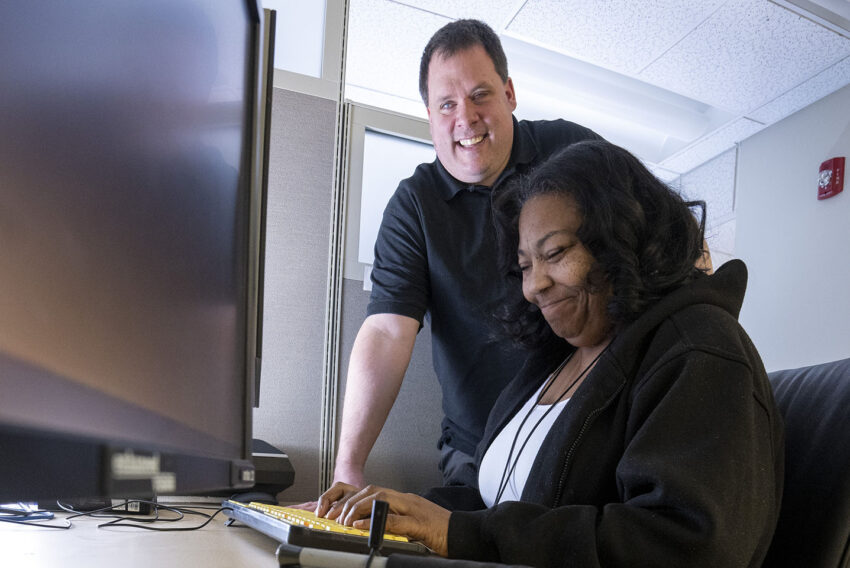Ashanti’s Story

When Ashanti Hall started her job with the U.S. Postal Service, she had a definite career goal—to be a postal inspector. Her strong work ethic and dedicated, no-nonsense approach to work made her the perfect candidate.
But at the age of 34, retinitis pigmentosa (RP) derailed her life plan.
It all started back when Ashanti was in her late twenties. She experienced a temporary vision issue but was still able to continue her daily routines of life and work. Six years later, a trip to the eye doctor for blocked tear ducts resulted in a routine eye exam and a referral to see a specialist. The doctor suspected she had retinitis pigmentosa.
Her appointment with the eye specialist confirmed she had RP. In fact, the specialist very bluntly told her she was going blind.
Ashanti left the doctor’s office in a state of denial. Although she had lost her peripheral vision, she could still see, and she thought she was functioning fine. Soon after, she discovered she was missing people in the room—they were there, but she couldn’t see them because they were outside her field of vision.
To help her cope with the diagnosis, a friend took her to Illinois to see a well-known ophthalmologist. He thoroughly explained RP to her, breaking down the different stages of the eye disease and helping her understand the phase she was in.
Meanwhile, the Postal Service informed her there was no appropriate job at the management level for someone with vision loss, and she was disability retired. And then her family took away her car keys, and she could no longer drive.
She was devastated.
But Ashanti enjoys working, so she put her business degree to work and started her own company, serving as a business manager for small day care centers. The Department of Vocational Rehabilitation (DVR) secured the tools to make her computer technologically accessible and referred her to Vision Forward for special training on the equipment.
The assistive technology enabled Ashanti to run her own company, providing accounting, tax and general office services to her clients. Eventually, though, without special training, she could no longer see well enough to keep her business going.
She felt benched again.
Then one day when she was at the bank, a man noticed her white cane and mentioned that his mother had vision issues and worked at Industries for the Blind and Visually Impaired (IBVI).
Ashanti was astounded. She had no idea there was a place of employment for people who are blind and visually impaired. She quickly found her way to IBVI and secured a job, putting her back in the workforce, surrounded by opportunities for growth.
Today, Ashanti continues her work at IBVI, recently completing an internship in IBVI’s Contracts department. To help her succeed in her internship, she received additional on-the-job computer and keyboard instruction from Vision Forward through a training contract IBVI arranged to benefit its employees.
For her own personal and professional development, Ashanti is also enrolled at Vision Forward for further training—adaptive daily living (ADL), orientation and mobility (O&M), braille, and advanced technology.
Reflecting on the collaboration of agencies and services that has helped her get to where she is today, Ashanti exclaims: “Look out for angels and angels’ helpers, like DVR, IBVI, Vision Forward and the eye doctors. Your life is not over. It’s just beginning. Don’t ever give up!”
Thank you for investing in Ashanti and others living with vision loss.
Together, with your support, we can positively change the present and future of people of all ages who are blind or visually impaired.